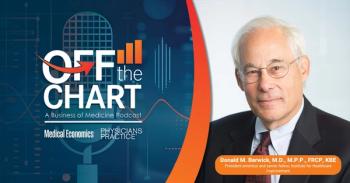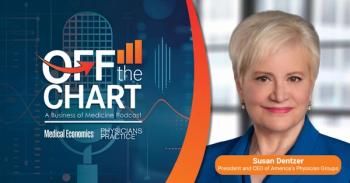
Trying to Understand America's Outrageous Healthcare Prices
A recent study looked at America's high cost of healthcare and why it stands above other industrialized countries.
Why does health care cost so much in America?
This is a trillion dollar question I ask myself every day.
First, the statistics regarding health care spending in the industrialized world. All of the industrialized world's health care spending is grouped tightly in the 8.9 percent (Norway) of gross domestic product (GDP) to 11.1% (Netherlands).
Then comes the US as a significant outlier spending 16.4 percent of its GDP on health care as 2015 (Source OECD Health Statistics). Why is health care delivery in this country so different and so much more expensive? That is the trillion dollar question.
Complicating this is the consumer driven, "free market" health care system in the U.S., unlike nearly every other health care delivery system in the industrialized world.
The growth in cost of the U.S. health care system has been staggering compared to any standard. Between 1996 and 2013, the expenditure on health care nearly doubled from $1.2 to $2.1 trillion dollars. This number has since exploded to $3.2 trillion dollars (2015, 17.8 percent of Gross National Product), moving us much farther from countries like Norway.
What the researchers from the Journal of Health Economics study found was a number of factors which influence the cost of health care in our country. Some are very obvious to those of us that practice medicine, here in the U.S. and abroad, and are the basis of risk evaluation of our patients.
These factors are the age of our patients and the prevalence of disease among the populations that we serve. This is compounded by the growth of a population, which has a direct correlation on expenditures for health care. What is less clear to me is these factors effect the percent of GNP when you consider the larger the population, ostensibly the more revenue and "economy" the country could pay for the expanding health care system.
The factors which correlated the most directly with continued increase in spending were service utilization, and service and price "intensity." Now, even I can see the direct correlation between service utilization and cost. There are a number of factors that have contributed to this, not the least of which was the Affordable Care Act, which extended health care coverage to millions of Americans, many for the first time.
Less clear was service price and intensity. Carefully reading the study helped. Service price and intensity meant different things in different parts of the health care system. I have to look at this from the context of hospital-based practice. Service price is the daily room charges, diagnostics, etc. There is tremendous pressure from the government and insurance carriers to shorten inpatient stays. This causes providers to cram more treatment and diagnostics into shorter stays, thereby increasing daily cost (service price and intensity), but reducing utilization. The authors found that the net effect was spending per day was outpacing the savings from lower utilization.
This is a complex problem which defies simple explanation and simple solutions. There is a tremendous need to further study our complex health care system so that we can devise better solutions to care delivery and rein in health care cost. It is not going to be easy.
Newsletter
Optimize your practice with the Physicians Practice newsletter, offering management pearls, leadership tips, and business strategies tailored for practice administrators and physicians of any specialty.









